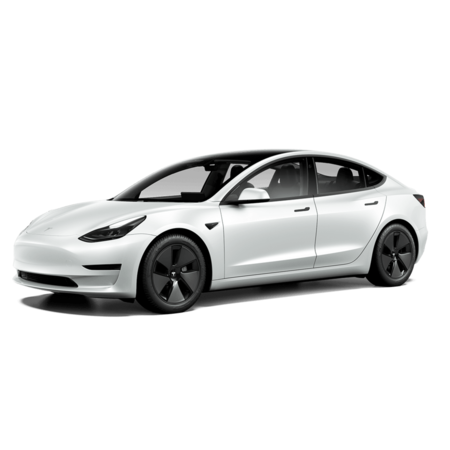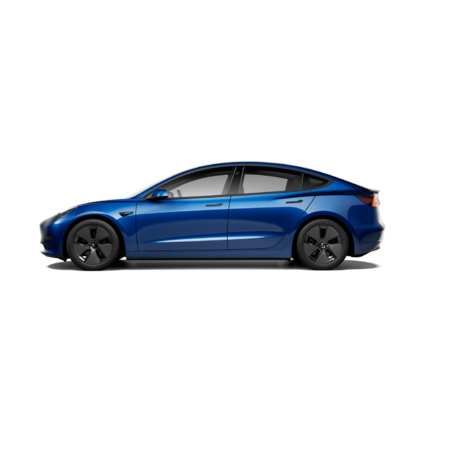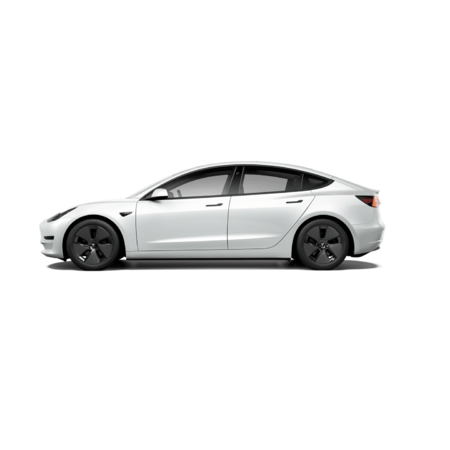-----
To qualify for the federal tax credit, one must not exceed the following adjusted gross income limits:
$300,000 for married couples filing jointly
$225,000 for heads of households
$150,000 for all other filers
Federal EV Tax Credit is not refundable, which means one must have federal tax due to take advantage of it. If the tax due is less than the credit amount, one can only claim the credit up to the amount of the tax due.
--------------
Here's how cheap you can get a new Model 3 RWD right now (including fed & local EV incentives):
• VT: $26,320
• MA: $26,830
• PA: $27,330
• MD: $27,330 - Delivered after July 1, 2023 https://marylandev.org/maryland-ev-tax-credit
• RI: $27,820
• DE: $27,820
• NY: $28,320
• CA: $28,330
• CO: $28,330
• CT: $29,030
• ME: $29,320
on top of above info federal, state and local incentive info that i posted , some employers are also providing ev incentive like exaple bank of america employees gets $5k incentive , in this case the best case scenario is like below
example scenario
• VT: $26,320 - $5000 bank of america employee ev incentive = $21,320
-------------
CA CLEAN VEHICLE REBATE PROGRAM
$2K is available if your household makes <$200k.
There is an increased rebate of $7500 ($5500 on top of the $2k) available if you fall below income caps based on your household size.
Family of 4 max is $111k, Family of 6 is $149k.
This comes in the form of a check in 2-3 months. https://cleanvehiclereb
This is separate from the CARB Clean Vehicle Grants described below the dashes. It is possible to qualify for both, but the timing is different.
----------------
And California residents that live in a disadvantage community (DAC) https://cleanvehiclegra
Disadvantaged communities are determined using CalEnviroScreen (https://oehha.ca.gov/calenviroscr...
here's the DAC map: https://oehha.ca.gov/calenviroscreen/sb535
And receive an Approval Letter through email.
You must receive an Approval Letter BEFORE you purchase a vehicle. We do not offer rebates and you cannot redeem a grant if you have purchased a vehicle before being approved.
This post can be edited by most users to provide up-to-date information about developments of this thread based on user responses, and user findings. Feel free to add, change or remove information shown here as it becomes available. This includes new coupons, rebates, ideas, thread summary, and similar items.
Once a Thread Wiki is added to a thread, "Create Wiki" button will disappear. If you would like to learn more about Thread Wiki feature, click here.





Leave a Comment
Top Comments
https://www.tesla.com/model3/design
Deal is even sweeter if you live in a state with additional credits:
VT: $26,320
MA: $26,830
PA: $27,330
RI: $27,820
DE: $27,820
NY: $28,320
CA: $28,330
CO: $28,330
CT: $29,030
ME: $29,320
Full tax credit details below, but the following income limits apply:
$300,000 for married couples filing jointly
$225,000 for heads of households
$150,000 for all other filers
https://www.irs.gov/credits-deduc...3-or-after
Withholding is totally irrelevant to qualifying for the credit.
If you're unclear on this go read a 1040.
The part where you compute tax liability is lines 16 through 24.
THAT is where the $7500 EV credit comes off.
Your withholdings aren't even looked at until after that on line 25+
This is also not correct.
The Child Tax Credit is worth a maximum of $2,000 per qualifying child. Up to $1,600 is refundable for the 2023 tax year.
Refundable credits are computed AFTER non-refundable ones-- so the CTC is only "worth" $400 off your tax burden for these purposes- the $1600 left is refundable.
Thus if you had say $7900 in tax burden and one CTC and one EV credit, your tax burden would go to $0 and you'd get a full refund of the $1600 refundable part of the CTC
Source:
https://www.nerdwallet.
1,792 Comments
Sign up for a Slickdeals account to remove this ad.
Phantom drain is practically nonexistent. I just came back from a 10 day trip with the M3 parked in an outdoor airport parking lot with exposure to sun and cold and everything and the drain was maybe 3%. 3% of 82kWH at 9c/kWH is less than a nickel. This is not a cellphone battery, do not be concerned about phantom drain.
Your gas savings heavily depend on your utility rates and your driving pattern. I've had the M3 since August 2018 and have put about 75k miles on it. I used to pay only 7c/kwh but now it's 9c/kwh. Even calculated at today's rates, I spent a little under $1600 over the last 5 years to drive(0.23kwh/mile x 75k miles x .09usd/kwh) about 75k miles. At $4/gallon for Norcal prices with 75k miles at 30mpg it would have been about $10k for the same miles.
Insurance is a bit expensive. I'm with GEICO and have a clean driving record, it's about $1000 per year. I'm also an old fart with a really clean driving record and I'm not happy that I'm still paying this much. I have a 2019 CRV that's half that rate.
Shredded408 said:
No thanks on these sheep vehicles...
+++++++++++++++++++++++++++++++++++++++++++++++++++++
They may be "sheep vehicles" but....
I do not own a Tesla. I'm doing research for facts, not anecdotal emotional feelings, Fact: Tesla shown to get best in class 4.1 miles/kWh. Non-peak charging is $0.23/kwh in my area. Some people get even less electricity cost. That is $4.1miles/ $0.23 = $17.8 Miles Per Dollar. Even a Prius getting 50 MPG, with gas about $5/gallon, is only 10 Miles Per Dollar. Unless we have a pandemic or the like, gas prices keep going up. When gasoline is $6/g, that Prius is only getting 8.3 Miles Per Dollar, and so on as gas goes higher. I doubt there will be a gasoline powered car that will get much more than about 50MPG because the ICE technology paradigm is maxed out. EV batteries, on the other hand, are in the early innings of research, development, and improvement. Undoubtedly there will be faster charging, longer range, better energy density, lower costs, etc. Tesla EVs will likely improve on that Miles Per Dollar. As more renewable energy and battery storage for uilities occur, there is less cost for producing electricity compared to fossil fuel electricity. Even Australia has seen the lowering of electricity costs because of renewable energy and closing coal plants.
https://www.youtube.com/watch?v=hC18Jai
If you think fewer gas cars may mean less demand for gas, then lower gas prices, you are more naive than I thought. Gas companies will protect there profit margins by cutting production so they can gouge ICE car owners to that last drop. So as gas prices rise, and you know it will, all ICE cars owner will "brag about their MPG" but most importantly get less Miles Per Dollar.
Despite nay-sayers about AutoPilot and Full-Self-Driving, studies also show far greater miles driven before an accident compared to a regular driver without such software.
https://www.tesla.com/VehicleSafe...s
https://www.teslarati.c
Also gov crash and safety study shows Tesla models have lowest risk of bodily injury in an accident compared to all other vehicles...
https://www.tesla.com/blog/model-...sted-nhtsa
These Tesla EV "sheep vehicles" also have the option to subscribing, instead of buying outright, to the Full Self Driving per month. So maybe a good way to try it? Maybe good for road trip to unfamiliar area and long drives? Maybe good for time-being needs like injury, illness, handicap, assistance, etc.? Maybe good for beginner driver (or elderly driver) for extra safety measure?
I don't own a Tesla EV yet. But I don't like paying extra unnecessary bucks to get from point A to point B with an inferior product, just because of my pride or ignorance. Tired of my Prius because I still pay for gas, oil changes, smog check, worry about catalytic converter theft, etc.
I am a multi-car buyer of Toyotas in our extended family members. One by one, more own a Tesla. I'm the "black sheep" hold out so far.
The rest of your post was just examples of Elon speculating about some future products and/or abilities that didn't exist at the time he speculated on them-- not any sort of specific financial guarantee to present customers.
They have ~20 billion dollars in cash, have been massively profitable every quarter for years, and dominate the industry in vehicle profit margins.
Literally nothing you claim is supported by anything resembling a fact.
Tesla said the full $7500 credit is valid on ALL versions, even the LFP battery ones, and retroactive to April 18th, so everyone who bought one gets the $7500 credit available to them if they otherwise qualify on income/tax burden.
Of course- assuming you otherwise qualify (ie you aren't over the income cap, and you have 15k in tax liability)
It's a common issue.
Tesla never had that problem and 10 year old batteries routinely retain >85% of their original charge.
Like anyone else they'll take any brand as a trade in.
Teslas use the same tires any other car does- and you can replace that at any of the thousands and thousands of tire shops all over the country.
Full self driving is plain language and deceptive.
Can you show me the legal definition that makes your claim about this anything less than obviously untrue?
Because at a glance it looks like you dismissed 2 descriptive names that don't LITERALLY do what their name does without giving any reason for that- and insisted one was legally binding despite demonstrating 0 difference between any of em.
Puffery is a legal term regarding specific claims about what the product does.... Not some overly literal reading of the NAME of the product.
And as pointed out- Teslas FSD capability option does everything it claims it does in the product description shown during purchase
Your withholdings are totally irrelevant to how much of the credit you can use.
Again- withholdings don't appear on your 1040 until line 25.
Your tax owed, and the EV credit, have all already been handled before then.
Our community has rated this post as helpful. If you agree, why not thank OceanTwelve
Can you cite any example of Tesla, the company, making a public statement about pricing or tax credits on existing products that turned out not to be factual?
The rest of your post was just examples of Elon speculating about some future products and/or abilities that didn't exist at the time he speculated on them-- not any sort of specific financial guarantee to present customers.
They have ~20 billion dollars in cash, have been massively profitable every quarter for years, and dominate the industry in vehicle profit margins.
Literally nothing you claim is supported by anything resembling a fact.
Because it's required by federal law on every new car sale from every brand.
Given they typically have either a backlog, or less than a week or two of inventory on hand, they're not really "losing" anything--- there's still plenty of buyers for every car they make.
Nope.
Tesla said the full $7500 credit is valid on ALL versions, even the LFP battery ones, and retroactive to April 18th, so everyone who bought one gets the $7500 credit available to them if they otherwise qualify on income/tax burden.
Again- nope-- see reply directly above this one. EVERYONE gets it, even previous buyers.
To be clear- they take it off at point of sale--- but when you do your taxes if you didn't actually qualify for it you'll be writing the IRS a check for the full value you took at time of sale but did not qualify for.
Of course- assuming you otherwise qualify (ie you aren't over the income cap, and you have 15k in tax liability)
I'm sorry you bought an early Nissan leaf that had no liquid cooling system at all and thus wrecked itself.
It's a common issue.
Tesla never had that problem and 10 year old batteries routinely retain >85% of their original charge.
I don't think so Tim.
Like anyone else they'll take any brand as a trade in.
...what?
Teslas use the same tires any other car does- and you can replace that at any of the thousands and thousands of tire shops all over the country.
Income limit does not change
You can use either.
Can you show me the legal definition that makes your claim about this anything less than obviously untrue?
Because at a glance it looks like you dismissed 2 descriptive names that don't LITERALLY do what their name does without giving any reason for that- and insisted one was legally binding despite demonstrating 0 difference between any of em.
Your withholdings are totally irrelevant to how much of the credit you can use.
Again- withholdings don't appear on your 1040 until line 25.
Your tax owed, and the EV credit, have all already been handled before then.
Sign up for a Slickdeals account to remove this ad.
So basically, would I subtract the tax credit amount to line 24 (total tax) and then subtract from line 33 (total payments)? So if you normally receive tax refunds, you would essentially add $7500 on top of what you normally would get refunded? Am I understanding this correctly?
Again, I gave a specific flow chart of how this works earlier.
If you normally get a refund or not is not relevant to how much of the $7500 credit you qualify for....here it is again:
The overly simplified way to consider this is look at line 16 of the 1040 without any non-refundable credits considered yet... That is your initial tax burden.
You can reduce that amount, dollar for dollar, for all non-refundable credits available including the $7500 EV credit and the $400 non-refundable part of any CTC you qualify for.
If you get to 0 and still have non-refundable credits, you lose the overage but all refundable credits become the start of your refund amount.
If you still aren't at 0 you can now reduce that amount, dollar for dollar, for all refundable credits.
If you get to 0 and still have refundable credits you DO NOT lose that overage- it becomes the initial amount of your refund.
THEN, and ONLY THEN, would you look at your withholdings at all
If you were already at 0 with the above then you take your total withholdings and add 100% of it to your refund
OR
If you never reached 0 after all those credits, you reduce the remaining tax burden dollar for dollar until you reach 0 any remaining withholdings is your refund.
If you STILL don't hit 0 by the end of withholdings, that's your tax bill.
Tesla states it on the purchase pages, and has made public statements confirming you get it.
So unless you think one of the largest companies in the world is just engaging in explicit and outright fraud you can be pretty sure.
On the other hand, I would be thrilled to see the full tax credit available again on the non-Performance 3, but according to the IRS, the credit is still $3,750. See here [fueleconomy.gov]. This is current as of 6/1, so unless something changed since yesterday (and there is no news supporting this), it sounds like an error.
Sign up for a Slickdeals account to remove this ad.
Jan 1 the EV credit becomes point of sale- so it comes right off the price of the car at time of purchase.
THAT said- the qualifications are the same... so when it comes time to do your taxes if it turns out you didn't actually qualify for the credit you'll be writing the IRS a big check.
2019:
Q1 and Q4 price increases last month of quarter. Q2 and Q3 no changes.
So 0 end of quarter cuts all of 2019 but two last month of quarter increases.
2020:
Q1 through Q4- 0 price cuts last month of the quarter all year.
2021:
Q1 the SR and LR both increased $1000 3 weeks before end of quarter, P no change.
Q2, Q3, Q4 no change to any Model 3 last month of quarter.
So 0 end of quarter cuts all of 2021 but one last month of quarter had an increase.
2022:
Two weeks before end of Q1 2022 for example Tesla actually raised Model 3 prices by $2000 on the SR and $3000 on the LR and P.
Two weeks before end of Q2 2022 they raised Model 3 LR prices another $2000 (SR and P stayed the same)
Last month of Q3 and Q4 2022 saw no changes either direction for any Model 3.
So 0 end of quarter cuts all of 2021 but several increases in last month of a quarter.
2023 so far:
Last month of Q1 2023 also saw no changes either direction for any Model 3.
In short- zero times going back years was your statement accurate.
Leave a Comment